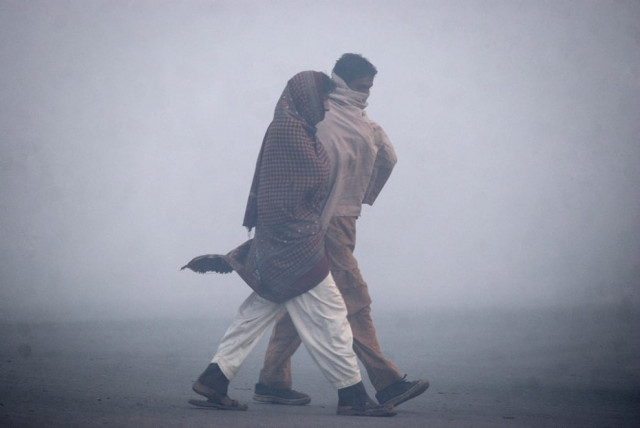Winter drought fuels respiratory woes
Illnesses rise amid prolonged dry weather in K-P

In the non-mountainous districts of Khyber-Pakhtunkhwa, an unforgiving and dry winter has taken hold, intensifying the rapid spread of respiratory diseases across all age groups.
The Meteorological Office anticipates persistent cold and dry conditions for the next month, with limited rainfall expected thereafter. This prolonged dry spell has led to a surge in respiratory ailments, underscoring the profound impact of climate change on the region.
Typically, November witnesses winter rains in Peshawar and other parts, while snowfall blankets mountainous regions. However, this year, the province is experiencing a conspicuous absence of rain, raising considerable concerns among weather experts.
The Met Office reports predictably low rainfall in December, heightening the risk of dust and pollution, further contributing to respiratory illnesses.
Recent weather anomalies have already manifested in Upper and Lower Chitral districts, where torrential downpours and the season’s inaugural snowfall occurred earlier this month.
Read Skin allergies rise in winter
These events underscore the far-reaching consequences of climate change, amplifying the challenges faced by the residents of Khyber-Pakhtunkhwa.
The region has witnessed an uptick in extreme weather events, including floods, unusually high rainfall, and heavy snowfall.
In June, Lower Dir district fell victim to a severe storm attributed to climate change, resulting in the tragic loss of life and significant infrastructure and agricultural damage.
The intense storm uprooted trees and led to a prolonged disruption in the power supply, lasting for more than 10 hours. Tragically, during the storm, Sultan Jana lost her life, while Zehra Bibi sustained severe injuries after being struck by lightning in the Samar Bagh area.
Additionally, the Chitral district also encountered a similar hailstorm and heavy downpour.
Published in The Express Tribune, December 11th, 2023.


















COMMENTS
Comments are moderated and generally will be posted if they are on-topic and not abusive.
For more information, please see our Comments FAQ